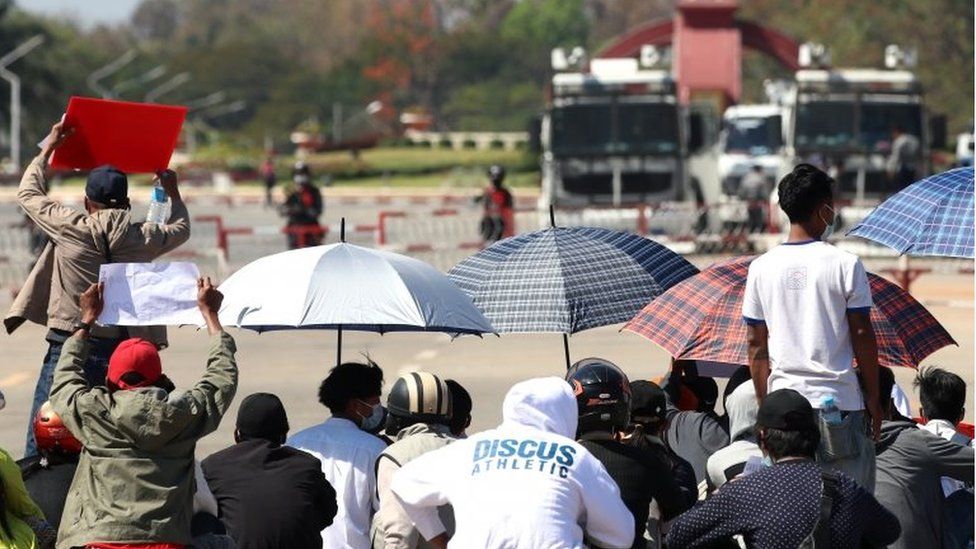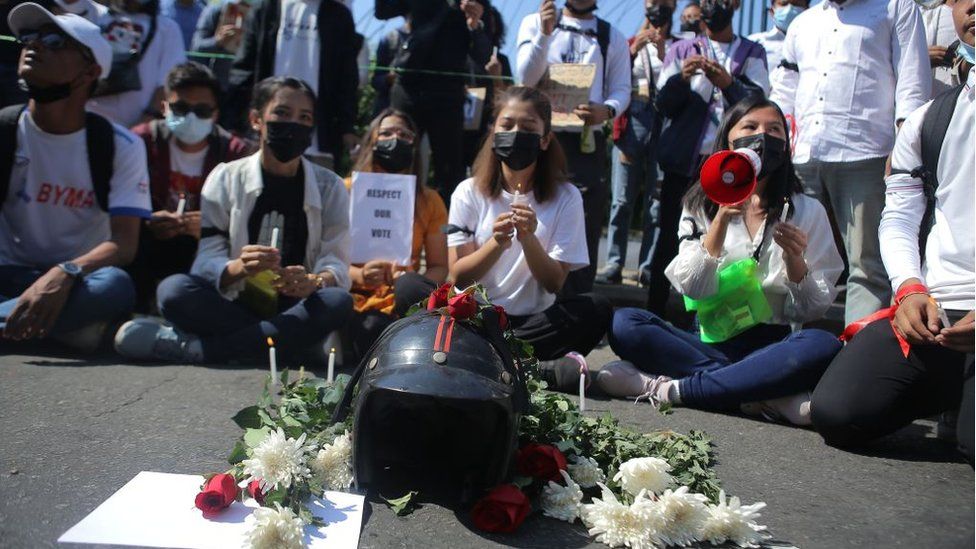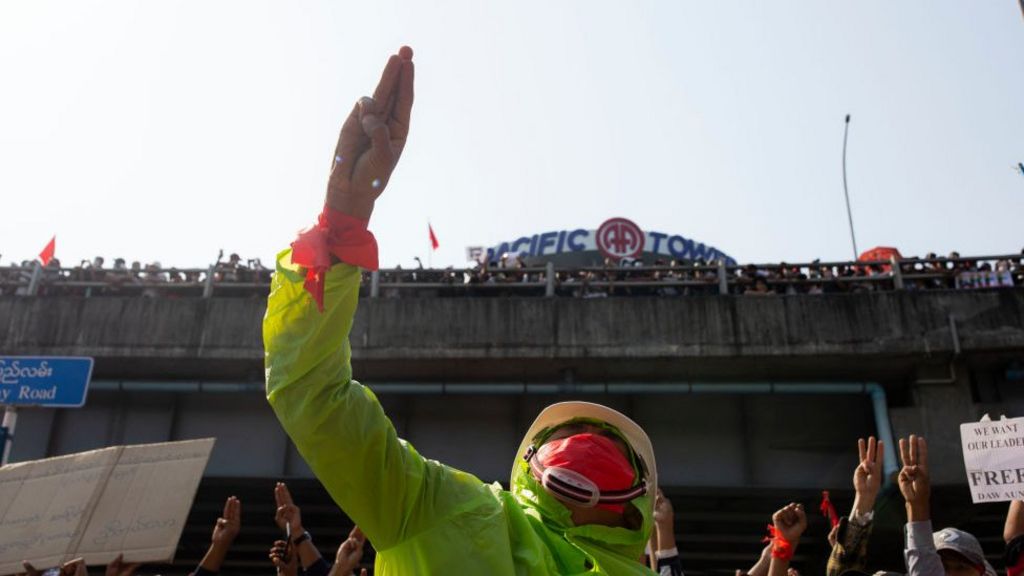Myanmar coup Woman shot at protest fights for life
A woman who was shot in the head while protesting against Myanmar’s military coup is in a critical condition at a hospital in the capital Nay Pyi Taw.
Mya Thwe Thwe Khaing, 19, was hurt on Tuesday when police tried to disperse protesters using water cannon, rubber bullets and live rounds.
The wound was consistent with one from live ammunition, rights groups say.
US President Joe Biden says his government will impose sanctions on those responsible for the coup.
Mr Biden said the sanctions would focus on military leaders and their family members along with their business interests. The US will also enforce strong export controls.
“The people of Burma are making their voices heard and the world is watching,” he said, vowing to take further action if needed.
“As protests grow, violence against those exerting their democratic rights is unacceptable and we’re going to keep calling it out,” he added.
There have been reports of serious injuries as police have increased their use of force, but no deaths so far.
Meanwhile, dozens of police officers joined protesters in eastern Kayah state.
Tens of thousands have turned out in street protests against last week’s coup, which overthrew Aung San Suu Kyi’s democratically-elected government in the South East Asian country, despite a recent ban on large gatherings and a night curfew.
Demonstrations re-started on Wednesday morning, for a fifth consecutive day, with a large group of civil servants gathering in Nay Pyi Taw to protest.
 IMAGE COPYRIGHTEPA
IMAGE COPYRIGHTEPAOn Tuesday, police used water cannon in Nay Pyi Taw against protesters, who refused to retreat.
Warning shots were reportedly fired into the air before rubber bullets were used. Doctors later said it appeared live ammunition had hit protesters.
According to BBC Burmese, who spoke to an unnamed medical officer from a Nay Pyi Taw hospital, Mya Thwe Thwe Khaing suffered a serious head injury and another demonstrator had chest injuries.
Mya Thwe Thwe Khaing, who turns 20 on Thursday, is now in intensive care.
Her sister, Mya Tha Toe Nwe, who was also at the protest, said the chances of her sister surviving are slim.
“It’s heart breaking,” she said. “We only have our mother, our dad is already dead.
“I’m the eldest of four siblings, she’s the youngest. I can’t comfort mum, we have no words.”
 IMAGE COPYRIGHTAFP
IMAGE COPYRIGHTAFPThe injured woman’s brother Ye Htut Aung told the Reuters news agency she had insisted on protesting, and that he spoke to her on the phone shortly before she was shot.
“What are you going to do if they shoot?” he reportedly asked.
“No, they wouldn’t,” she replied. “It’s OK. Even if they fire, it should be fine.”
According to a report by Human Rights Watch, a doctor from the hospital said the teenager had a “projectile lodged in her head and had lost significant brain function”.
The unidentified doctor said the wound was consistent with the use of live ammunition, and that a metal bullet had penetrated the back of the injured woman’s right ear. A man wounded at the same protest also appeared to have similar injuries.
A separate report by Fortify Rights quoted a doctor who said the woman was brain dead from an “imminently fatal gunshot wound to the head”.
Earlier, a clip purportedly showing a woman being shot circulated online. The footage shows the woman wearing a motorbike helmet collapsing abruptly.
Separately, pictures on social media showed what appeared to be a blood-stained helmet. The BBC has not verified the authenticity of the images.
The United Nations special rapporteur on Myanmar has warned the country’s security forces that they face prosecution under international law if they use excessive force against demonstrators.
“Myanmar military personnel and police need to know that ‘following orders’ is no defence for committing atrocities and any such defence will fail, regardless of their place in the chain of command,” Thomas Andrews said in a statement issued in Geneva.
He said that “hundreds of arbitrary detentions” had been recorded since the coup.
Previous protests against the country’s decades-long military rule, in 1988 and 2007, saw large numbers of demonstrators killed by the security forces. At least 3,000 protesters died in 1988 and at least 30 people lost their lives in 2007. Thousands were imprisoned during both sets of events.








